Our bodies function best on deep, clean cycles of highs and lows. When we engage fully and recover deeply we get more done and feel happier while doing it.
Studies on elite performers like Olympic athletes and Navy SEALs show that their peak performance isn’t just from hard work or mental toughness.
Top performance — sustained top performance — comes from recovery. Real recovery. Something which few of us truly enjoy.
Modern life means that most of us live in the gray zone. We’re never engaged in a single task, and we’re never disengaged in something rejuvenating.
We browse news and check instant messages while working. We glance at incoming emails on our phone during dinner.
That’s where I was in 2009.
It was the first year of running my first business. I would wake before sunrise and start juggling countless tasks and “fires.” I’d finally go to sleep while tabulating to-do lists in my head.
When we spend our day “putting out fires” we stay in a mild stress-response.
Each new fire, each new distraction, each new task we try to juggle is another shot of stress hormone. We’re busy, sure. But at the end of the day we’re not sure what we got done.
This takes a toll on every system in our bodies. It shifts brain activity away from the frontal cortex, the center for high-level processing. It switches it towards the limbic system, the more primitive “fight or flight” center of the brain.
Chronic multi-taskers (as I was) filter information poorly. They can’t focus well on a single task, or switch between tasks. They have lower working memory.
That was me.
My attention was always divided. There was always a “white noise” of distractions and demands.
I didn’t have a proper peak-and-recovery cycle. I was never fully “on” (because I was juggling things in my head) but I was never fully “off”, either.
Alaska changed all that.
In June, I left my business behind and flew to Alaska to join a commercial salmon fishing crew in Bristol Bay.
Alaska forced me into a simple routine.
A small cabin on the beach. No cell phone, no electricity.
Eat, sleep, fish. 12 hours on, 12 hours off, except for the big runs of fish when we’d pull several shifts in a row.
Between shifts, there were simple chores. Do the dishes. Mend a net. Switch out a boat battery. Hike up the hill and gather alder wood to smoke salmon.
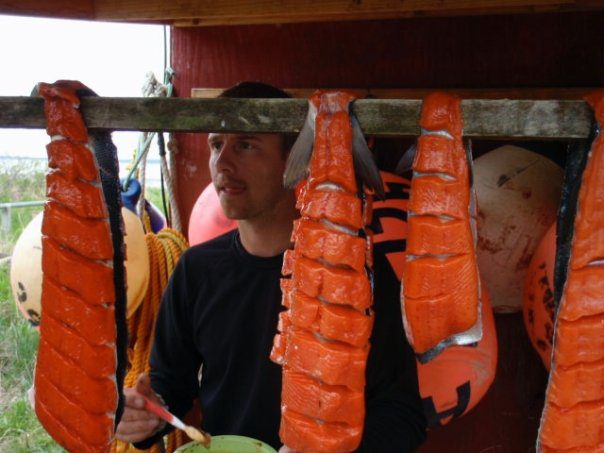
I was unaccustomed to the lack of distraction in Alaska.
I touched my pocket for the imagined buzz of a text message. I lay in my sleeping bag wondering what was in my email.
As I hauled anchors and pulled nets, I worried about clients back home.
What flows through our attention shapes our brains.
In the same way that our bodies adapt to deadlifting, the pathways in our brains that fire become more efficient.
Taxi drivers develop a larger hippocampus, which is crucial for navigation. Violinists show expansion in the part of their cortex that controls their left hand.
As you become happier, the frontal region of your brain becomes more active. You learn to be calmer and more focused.
But if you’re hopping from task to email to fire, your brain cements that process. You learn to be more anxious and distracted instead.
After about two weeks in Alaska, I calmed down.
When I was pulling an anchor, I was pulling an anchor. I stopped feeling imaginary text messages buzzing in my pocket.
I let go.
The distraction melted away.
As I hauled nets and sorted fish, I heard the occasional whoosh of a breached whale exhaling near the boat in the darkness.
I felt a profound sense of appreciation when the morning sun broke through the frigid fog.
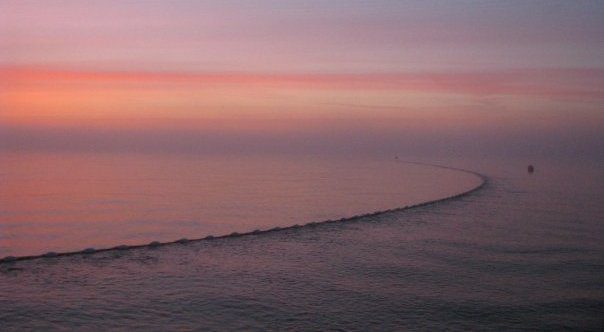
Researchers have coined the term “nature-deficit disorder”.
It’s an atrophied sense of awareness, a diminished ability to find meaning in the life that surrounds us.
As Robert Sapolsky put it:
“If I had to define a major depression in a single sentence, I would describe it as a ‘genetic/neurochemical disorder requiring a strong environmental trigger whose characteristic manifestation is an inability to appreciate sunsets.”
Psychologists Rachel and Stephen Kaplan study how nature can heal our frazzled minds.
They’ve found that immersion in nature helps overcome what they call directed-attention fatigue.
The Kaplans say that one of the best antidotes to mental fatigue is involuntary attention. This is the kind of open fascination that we feel in certain environments.
Salmon season is during the summer solstice.
The sun would set for about two hours, with a two-hour long sunset and a two-hour long sunrise. This had an interesting effect on energy levels.
If I was outside, I wasn’t tired. I’d be mentally aware that it was midnight despite the sunshine, but my body didn’t seem to care.
To sleep, we would black out the cabin with curtains. Once in bed, I’d sleep immediately.
Corey, the guy running the fishing crew, is one of the hardest-working people I’ve ever known. I never set an alarm because I knew that he’d be up early, rustling around in the cabin getting ready.
I could fall asleep completely assured that I would wake again when needed.
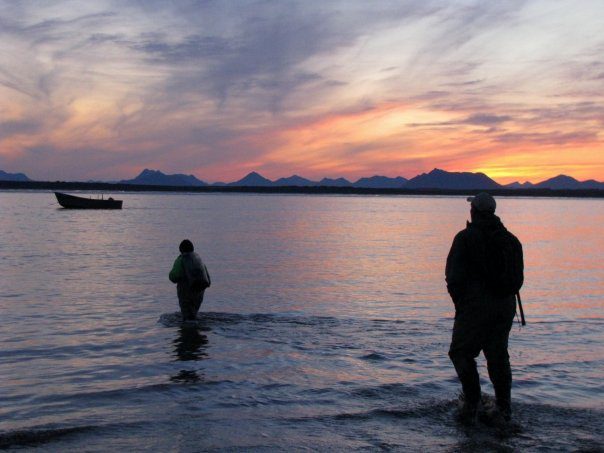
The biggest run of fish hit in the first week of July.
You’d feel salmon bumping against your legs as you walked out to the boat.
Crews couldn’t clear the fish out of their nets fast enough and were giving away 900 pound iced bags of fish to passing boats to keep up.
We worked for around 48 straight hours, pulling nets hand over hand, picking each fish out and tossing them in the bags. A pair of leather gloves lasted about five hours before wearing through. Our fingers cracked and bled.
When it was over they shut down fishing for 48 hours to assess the number of fish that had made it up the river to spawn.
I ate a fillet of king salmon and went to sleep at 5 pm on Tuesday, free from preoccupation and exhausted.
When I woke up and crawled out of my sleeping bag, it was 6 pm on Thursday.
I’d been asleep for just over 24 hours.
The rest of the crew was sipping whiskey around a bonfire on the beach.
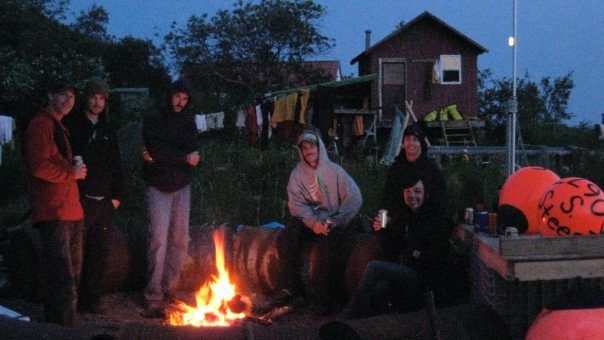
To say Alaska saved my sanity is probably an overstatement.
Though some days it kinda feels that way.
What it did was show me how out of order my life (and attention) had become.
I had been starving for nature. For focus. For stretches of uninterrupted time and space.
For work that leaves a person with a tired body and peaceful mind at the end of the day.
For light that came from a sun, not a fluorescent lamp.
For the kind of community you get from a team dedicated to a single, simple purpose.
These days, I think differently about how I recover.
Now I make recovery a priority.
And I don’t need to visit Alaska to “get away”.
In my daily life, I’ve learned to cycle the highs and lows. That my “on” is on, and my “off” is off.
Now, when I do a task, I do that task. Not another one at the same time.
And when I’m recovering, you won’t find me at all. I’ll disappear. Go dark and quiet.
Or to a place where I can return to that open, natural attention. Remembering the smell of the wood smoke and the feel of salmon bumping against my legs.
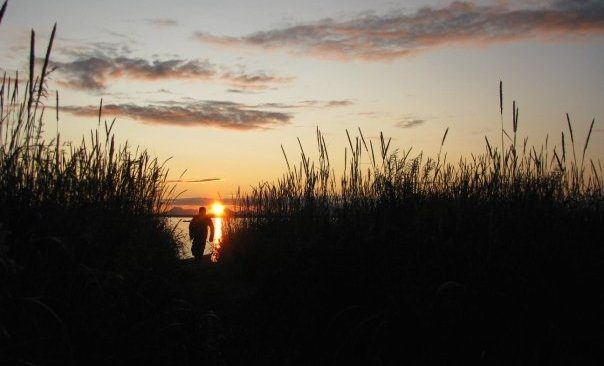




Share